What We Invest in

With different cultures and a diverse topography, Africa is truly the land of opportunities. It has a fast growing telecommunications industry, a thriving agricultural sector, a vast minerals industry as well as a wide pharmaceutical sector.
Our proprietary investments are diversified to incorporate the following industries:

AGRICULTURE
With more than 60% of its 1.166 billion people living in rural areas, Africa’s economy is inherently dependent on agriculture. More than 32% of the continent’s gross domestic product comes from the sector.”
In Africa, agriculture accounts for two thirds of livelihoods and food accounts for two thirds of the household budgets of poor people. It makes up a very important part of the lives of African people.
The single most pressing challenge facing African governments is to harness the continent’s increasing wealth and use it to improve people’s lives. Agriculture is at the heart of that challenge. To reduce poverty and boost economic growth, Africa has to develop a vibrant and prosperous agricultural sector.
Africa has the land, water and people needed to be an efficient agricultural producer – and to feed an expanding urban population. The Guinea Savannah, a vast area that spreads across 25 countries, has the potential to turn several African nations into global players in bulk commodity production. In addition, countries such as Ghana, Mali, Senegal, Mozambique and Tanzania, have large breadbasket areas that could feed regional populations, displace imports and generate exports.
The global market is aware of Africa’s vast potential to become the world’s granary and is making the right moves to tap into this opportunity. By investing and transferring technology and skills to the local population, it ensures that best practices in agriculture can be easily adopted by future generations.
In order to be successful and sustainable, funding for agricultural mechanisation development must be tailored to local needs and must be firmly embedded in broader agricultural policy approaches. Malus Rosaceae seeks to ensure an effective transition from hard-labour jobs in the fields towards jobs related to the increased use of mechanisation, through supporting government and private projects that incentivise local farmers to increase production of international quality yields.
This is how agriculture in Africa will reach the standards of productivity and quality necessary to feed our own population and also to become a net exporter of agricultural products in the near future.

CIVIL AVIATION
Passenger traffic growth of African carriers has been volatile and consistently lower than the world average growth
Top 10 States in Africa account for the majority of the international passenger traffic carried by African carriers.
Currently in Africa, 19 States have no international airlines, 22 States have only 1 international airline, and 4 States have more than 3 international airlines
12 African States do not have international flights served by African carriers, 15 States only have international flights served by African carrier for intra-Africa routes;11 States have more than 20 international destinations served by African carriers, 7 States have more than 60 international destinations, and 4 States have more international destinations outside of Africa than within Africa
35 African States have less than 20 international flights per day while the Top 5 States have over 100 international flights daily
30% of international passengers from Africa travelled through connecting flights, and even 22% of international traffic between African States are connecting flights
The civil aviation industry in Africa has emerged as one of the fastest growing industries in the continent during the last decade and it has potential to grow still. Africa’s aviation industry is currently ranked poorly in comparison the global aviation market.
The continent has a combined 1700 aircrafts with nearly 450 more aircrafts expected to join the fleet by 2030. This leaves a vast gap for potential revenue that could be gained with more successful aviation operations. It is therefore the goal of Malus Rosaceae to pursue projects that are interlinked to the growth of this industry. Malus Rosaceae will partner with countries that are sanctioning the development of more airports and will assist with funds for struggling aviation start-ups.
This will enable efficient and swift travel passages inter-continentally whilst boasting the economies on the region through an increased GDP as the aviation industry alone has the potential to be the 3rd largest revenue earner on the region.

CONSTRUCTION
The construction industry makes up for a major part of Africa’s GDP. Being a significant contributor to the GDP of Africa, the industry acts as a gateway for more opportunities. Investment in the construction industry in Africa, therefore, directly leads to the continent’s economic development. The Construction industry in Africa consists of the real estate as well as the urban development segment. The Real estate segment covers residential, office, retail, hotels and leisure parks, among others, while urban development segment broadly consists of sub-segments such as Water supply, Sanitation, Urban transport, Schools, and Healthcare.
By 2030, the Construction market on the continent is expected to emerge as the 3rd largest globally and the construction output is expected to grow on an average of 7.1% each year. An enhancement in the construction industry will directly have a positive effect on other industries like cement, technology, steel, etc. The development of nations is recognized through its infrastructure. Malus Rosaceae seeks real estate and civil projects that will bring new innovative possibilities to uplift the construction industry.

TELECOMMUNICATIONS
Africa’s appetite for communications technology remains undimmed. Coming late to the telecommunications party, in a way, proved to be advantageous: in many cases, African economies have been able to leapfrog directly to the latest technology, unhampered by the need to ensure a return on investments in legacy technologies.
As a result, the majority of Africans with access to the Internet do so via mobile devices, and Internet penetration is growing strongly at around 20 percent, albeit off a low base.
There is wide consensus that Africa’s economic potential will only be fully reached if its economies digitise. Given that mobile technologies are the dominant means for accessing the Internet, this means that Africa’s telcos have a significant opportunity to provide the digital platforms for economic activity, something that is particularly important as revenues from pure voice and data will continue to reduce in the face of relentless competition.
The Telecommunications industry has witnessed exponential growth over the last few years primarily driven by affordable tariffs, wider availability, roll out of Mobile Number Portability (MNP), expanding 3G and 4G coverage, evolving consumption patterns of subscribers and a conducive regulatory environment.
The number of smartphone users in Africa crossed the 300 million mark in 2016 whilst the Total number of Subscriber Identity Module (SIM) connections is expected to reach 1.4 billion by 2030. The African mobile economy is growing rapidly and will contribute substantially to Africa’s Gross Domestic Product (GDP). There is a growing need for Telecommunication solutions that cut across industry sectors like health care, agriculture, retail, transport and logistics, manufacturing, mining and even real estate. It is therefore our aim, as Malus Rosaceae, to be at the forefront of ensuring that connectivity is seen as an important ingredient of the entire value chain. Our goal is to assist operators to remain relevant by investing in platforms that allow for faster time to market and differential charging mechanisms.
Globally, the telecommunication industry has changed dramatically in the last 10 years with consumer needs becoming more demanding. We see this as an opportunity to expand service portfolios that will cater to this demand for the ultimate digitalisation of the region and a growing African economy.
